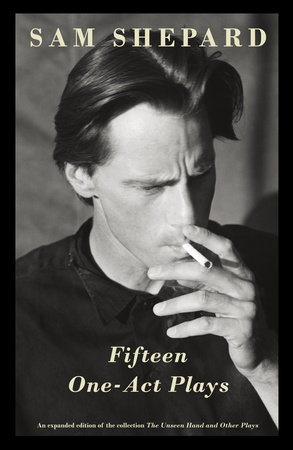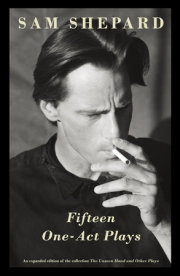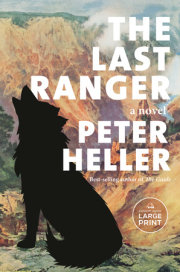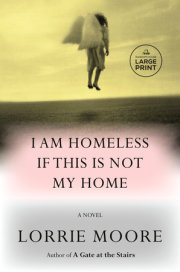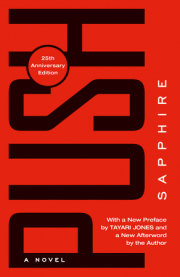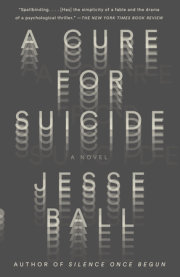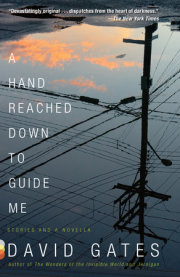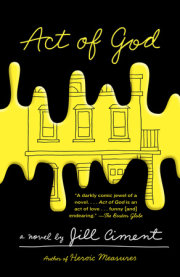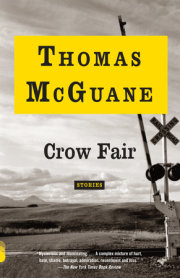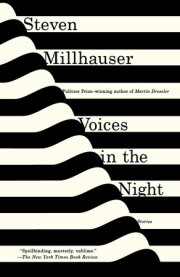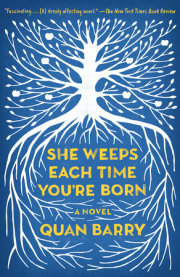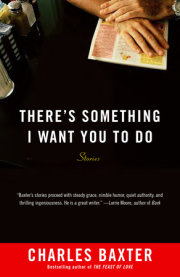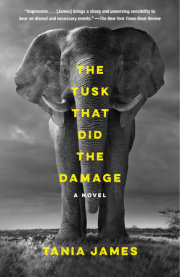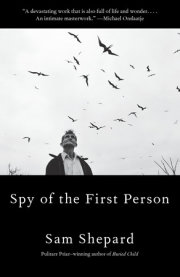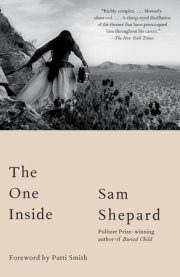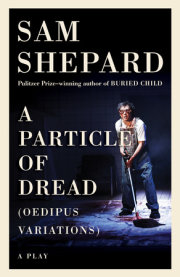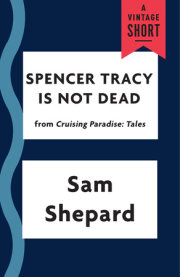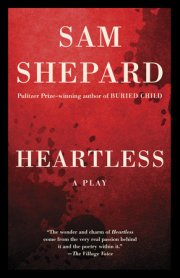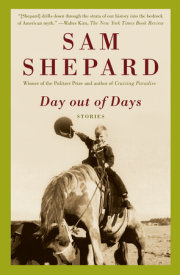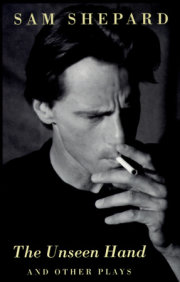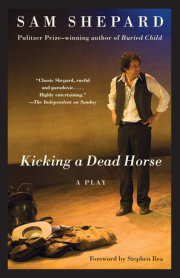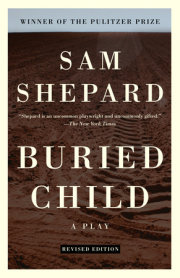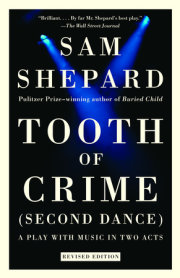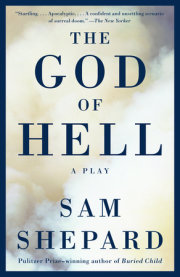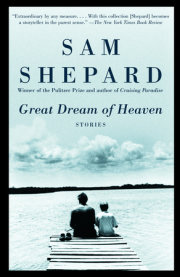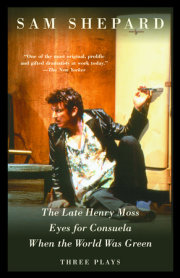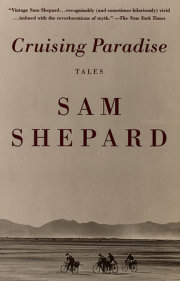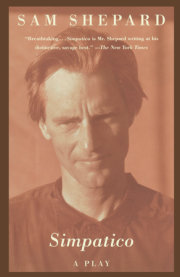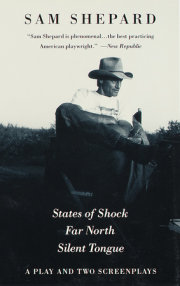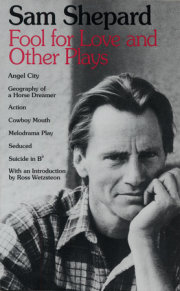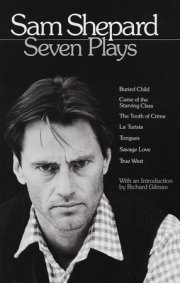Ages of the Moon Ages of the Moon was first performed at the Abbey Theatre, Dublin, on March 3, 2009, with the following cast:
Byron: Sean McGinley
Ames: Stephen Rea
It premiered in the United States on January 27, 2010, at the Linda Gross Theater in New York City with the same cast, and was presented by the Atlantic Theater Company.
The production was directed by Jimmy Fay.
I am the womb of every holt,
I am the blaze on every hill,
I am the queen of every hive,
I am the shield for every head,
I am the tomb of every hope.
Who foretells the ages of the moon?
—“Song of Amergin,” 1268 bc
Scene
Early 1800s whitewashed brick county house (Kentucky style), a story and a half high. Dark-green or black trim around door frame and windows; kitchen door stage left wall of house, letting out to plank wood porch facing audience directly. Porch is set about three feet above stage floor; plank stairs letting off to stage right with railing. Porch has a raised-seam metal roof, dark green. Large black fan hangs down from center of porch roof with thin chain dangling down. Fan is already in motion when play begins. Two raw cedar Adirondack chairs, well aged with weather stains, broad armrests, set on porch stage right and left, slightly angled toward each other with a small round wooden table between them. Solid kitchen door is wide open with an exterior screen door closed, revealing warm orange interior light of kitchen but no details like appliances, furniture, etc., just space. Each time screen door is opened by Ames it snaps shut behind him with an emphatic pop. Window in stage right wall of house with interior blinds half closed; yellow glow of light within. Two dormer windows set high above porch roof, right and left; no light from either. Roof of house disappears up into flies. Light surrounds house at all sides with no attempt at literal background, i.e., trees, hills, etc. House should appear to be hovering in space.
Play begins in bright noon sunlight of late summer, and light gradually falls off into dusk and then into black night with full moon effect occurring slowly like a stripe of white light, gradually narrowing to a knife-edge by end of play.
Lights down to black as audience settles. Ernest Tubb singing “Have You Ever Been Lonely” begins in dark. Lights slowly rise as song continues, revealing Ames, seated in stage left chair; Byron in stage right—each staring straight out over the audience and nursing a glass of bourbon on ice. They are both in their midsixties. Ames wears well-worn pointed dress shoes, old-fashioned white wing tips, laces untied and no socks; khaki work pants too short, no cuffs, revealing his skinny ankles; slightly stained white T-shirt, black suspenders over, no hat. Byron wears a pair of black work boots stained with red clay, faded brown Carhartt pants, black Western shirt with synthetic pearl snaps—no design on shirt, sleeves worn long, snapped at the wrists; a plain blue baseball cap with no insignia of any kind. A gray vest.
When song reaches its first instrumental break the lights are up and the instrumental slowly fades away to silence. Pause as the two of them stare out and casually sip their bourbon.
NOTES: All stage directions are from the POV of the actor, facing the audience.
Although the setting hints at being Appalachian, the actors should not attempt a corresponding accent. A flat middle-of-the-road sound is best.
Ames: Okay, okay, okay. (Sips from glass and sets it down) Here we go—here’s the really sour part of the whole deal. She discovers this note—this note from this girl, which to this day I cannot for the life of me remember. I mean—all right, maybe vaguely—very dimly—somewhere in the long ago. Some parking lot—middle of some rainy night. Bozeman or Billings, could’ve been. Fishing. I don’t know. I truly—but I swear, some girl I would never in a million years have ever returned to for even a minor blow job.
Byron: Minor?
Ames: Well, you know—
Byron: No, I don’t know. They’re all major, as far as I’m concerned. At this point.
Ames: Not something lasting—memorable.
Byron: Aha! Quickly forgotten.
Ames: Exactly.
Byron: But not in her mind.
Ames: What?
Byron: In her imagination.
Ames: Whose?
Byron: Your wife’s.
Ames: No—well, that’s the thing.
Byron: That’s why I’m here, I guess.
Ames: That’s why I called you, yes.
Byron: Some kind of moral support or something.
Ames: Well, I wouldn’t go that far.
Byron: Good. Just so we’re clear.
(Pause. They both sip bourbon and stare out.)
So, long story short, looks like you’ve got yourself into Big Doggy Doo-doo, “Mr. Frisky.”
Ames: I don’t know where it came from, I swear.
Byron: What?
Ames: The note.
Byron: Just appeared outta nowhere, huh? I bet that went over big.
Ames: Never saw her write it.
Byron: Too busy with your zipper?
Ames: She wrote it on the border of my fishing map when I wasn’t looking. Can you believe it?
Byron: Quaint.
Ames: Just scribbled her name and phone number. Right parallel with the Yellowstone River. As though I’d actually call her.
Byron: What was her name?
Ames: Can’t remember. I’m telling you—
Byron: But young—
Ames: Twenty-two, twenty-three, maybe.
Byron: You should be ashamed.
Ames: I know.
Byron: But are you?
Ames: I’m—
Byron: Banished.
Ames: Yeah.
Byron: Exiled. Never to return no more, no more.
Ames: Well—
Byron: She’ll forgive you. Maybe. Down the road.
Ames: I don’t know. It’s not a good feeling, being despised.
Byron: No. Meanwhile, this is not a bad place to lay low. Birds. Stars at night, I bet. Deer furtively grazing.
Ames: Yeah.
Byron: Trees. Peaceful.
Ames: I guess. Yeah.
Byron: When you’re not in turmoil.
Ames: Right.
Byron: Torture.
Ames: Yeah.
(Pause.)
Byron: How’d you find it, anyway? This place.
Ames: Fishing. You know—down here fishing. Had to get out of the city. Needed a escape, I guess.
Byron: Now it’s turned into your little refuge, huh?
Ames: Yeah.
Byron: “Made in the shade if the tree don’t fall.”
Ames: What?
Byron: The tree.
Ames: What tree?
Byron: Not these trees, it’s metaphorical. Sort of. Just—
Ames: Oh—
Byron: You know—the tree. Providing the shade. If it falls, then—
Ames: Well, it’s not the tree that’s metaphorical, then. It’s the shade. Isn’t it.
Byron: Whatever.
Ames: I’m not used to that.
Byron: What?
Ames: Something meaning something else.
Byron: Well, it’s not, really—
Ames: Maybe I’ve been out here on my own too much.
Byron: That’s quite possible.
Ames: Out of touch.
Byron: Could be.
Ames: It’s not good.
Byron: What.
Ames: Being so . . . remote, like this.
Byron: No—
Ames: I’m used to things being what they are. You know—
Byron: Right.
Ames: I mean a tree is a tree.
Byron: I never said it wasn’t.
(Long pause. They sit and sip.)
Ames: (Staring out) Is there anything sexier than women on bikes?
Byron: What?
Ames: Women on bikes.
Byron: Where’d this come from now? Out of the blue.
Ames: I’m just saying—
Byron: What?
Ames: I was just thinking—
Byron: Women on bikes?
Ames: Yeah. What’s sexier than that?
Byron: I don’t know.
(Long pause. They sip.)
Horseback, maybe.
Ames: Women horseback?
Byron: Maybe.
Ames: (Thinks) Nah.
Byron: Why not?
Ames: Too—
Byron: What?
Ames: Buff. You know—
Byron: Buff?
Ames: Butch.
Byron: Oh, stop.
Ames: On the muscle. You know what I’m talking about.
Byron: Oh—yeah, I suppose.
Ames: Upper arms. Sunburnt. Sweat pouring down their necks.
Byron: Thighs, maybe, too.
Ames: Exactly.
Byron: That’s all good, though, isn’t it? Thighs.
Ames: Well, in moderation.
Byron: All that power—between the legs.
Ames: Power?
Byron: Standing in the stirrups. Feet on the dashboard.
Ames: No, but see, that’s what I’m saying—about the bikes. Women on bikes.
Byron: What about it?
Ames: The legs—closer together. More delicate. More—
Byron: Oh, I see. Yeah. You mean on the bikes?
Ames: Exactly. Skirts flouncing against the pedals.
Byron: Flouncing?
Ames: Constant pumping.
Byron: Jesus, Ames—
Ames: (Sighs) Aaah—
Byron: You’re hopeless.
(Long pause. They sip.)
Ames: Supposed to be a total eclipse of the full moon at five a.m.
Byron: Is that right?
Ames: According to the book.
Byron: I didn’t realize you’d become a moon-gazer.
Ames: I’ve been studying it.
Byron: You’ve always been full of boundless curiosity.
Ames: I’ll get the book. (Stands)
Byron: Book?
Ames: Field Guide to the Night Sky. Fascinating stuff. Standing out here in the hay fields at night with a flashlight, you know—trying to figure out where everything is. Where we are in relation—constellations, you know. Makes my neck ache. (Picks up glasses) Another drink?
Byron: Why not? It’s only noon. Isn’t it?
(Ames exits into the house. Screen door slams behind him. Pause. Byron stares at fan. He calls out to Ames but there is no answer.)
Isn’t it noon, Ames? Roundabout?
(Pause. The fan slows and stops. Byron stares at it, then gets up and pulls on chain, but fan does not start up again. Sounds of Ames fixing drinks inside. Byron sits back down, pulls out slim cigar. Lights it.)
Ames’s voice: (From inside the kitchen while Byron smokes on porch) I do appreciate you coming all the way out here, Byron. On such short notice.
Byron: What are friends for?
Ames’s voice: Got myself into kind of a panic, I guess.
Byron: Yeah, well— Days were getting pretty long. You know, how they say out there, “Another boring day in Paradise.”
Ames’s voice: Yeah. Well, at least you’ve got good company. Lacey. Someone to snuggle up with, nights. Hootchy-kootchy. How long have you two been together, anyhow?
Byron: Oh . . . good long while.
(Ames returns with drinks and Field Guide tucked under his arm. Screen door slams shut behind him. Ames sets drinks down on the table; sits, thumbs through book. They both sip their bourbon.)
Ames: Here we go. Here we go. A little courage for the day.
Byron: (After pause) You’re not actually getting up for it, are you?
Ames: What’s that?
Byron: Total eclipse. At that hour. What was it?
Ames: (Studying guide) Five a.m.
Byron: You’re not rolling out at that hour just to stare at a black moon. Somehow, I can’t see you doing that. You’re not milking cows.
Ames: Might be one of those “once-in-a-lifetime” deals.
Byron: Naah. They happen all the time. At ungodly hours. That’s why we never see them.
Ames: (Referring to Field Guide; puts glasses on, reads from book) Here’s the chart. Look at this: “Two thousand five, October seventeenth, seven oh four, Eastern Standard Time. Partial eclipse. Length of eclipse, fifty-six minutes.” That was two thousand five.
Byron: October?
Ames: Right. Here’s another one. (Reads) “Two thousand six, September seventh. Partial. Length of eclipse, one hour thirty minutes.”
Byron: Longer.
Ames: Yeah. But look—there hasn’t been a total eclipse of the full moon since March third, two thousand seven. (Reads) “Duration of totality, one hour fourteen minutes. Length of eclipse, three hours and forty minutes.”
Byron: That was just in March.
Ames: I know.
Byron: Of this year.
Ames: I know. Now, we’re in August of this year.
Byron: So, that’s not so long ago. March. You were making it sound like it was centuries or something. Eons ago.
Ames: How much time have you got left?
Byron: Me?
Ames: Yeah.
Byron: On earth, you mean?
Ames: Where else are you going?
Byron: Well, no—I wasn’t— It’s not about my demise, for Christ’s sake.
Ames: No, but what I’m trying to say is, we haven’t got all that much time left. Here. The two of us. That’s all I’m saying. It’s not so complicated.
Byron: Have you got a terminal illness or something? Is that what this is all about?
Ames: Never mind.
Byron: Well, do you?
Ames: No!
Byron: You’re not holding something out on me, are you, Ames? Silently suffering?
Ames: No, I’m not. Of course not.
Byron: What?
Ames: I don’t.
Byron: What?
Ames: Have a terminal fucking illness!
Byron: All right, all right. Let’s not fly off the handle here. We’ve just been reunited after all this time.
Ames: I’m just saying—we’re not exactly spring colts anymore.
Byron: No, but evidently you can still get it up.
Ames: Jesus—
Byron: I’m not all that handy anymore, myself. I mean—
Ames: I don’t want to hear about it!
Copyright © 2012 by Sam Shepard. All rights reserved. No part of this excerpt may be reproduced or reprinted without permission in writing from the publisher.

